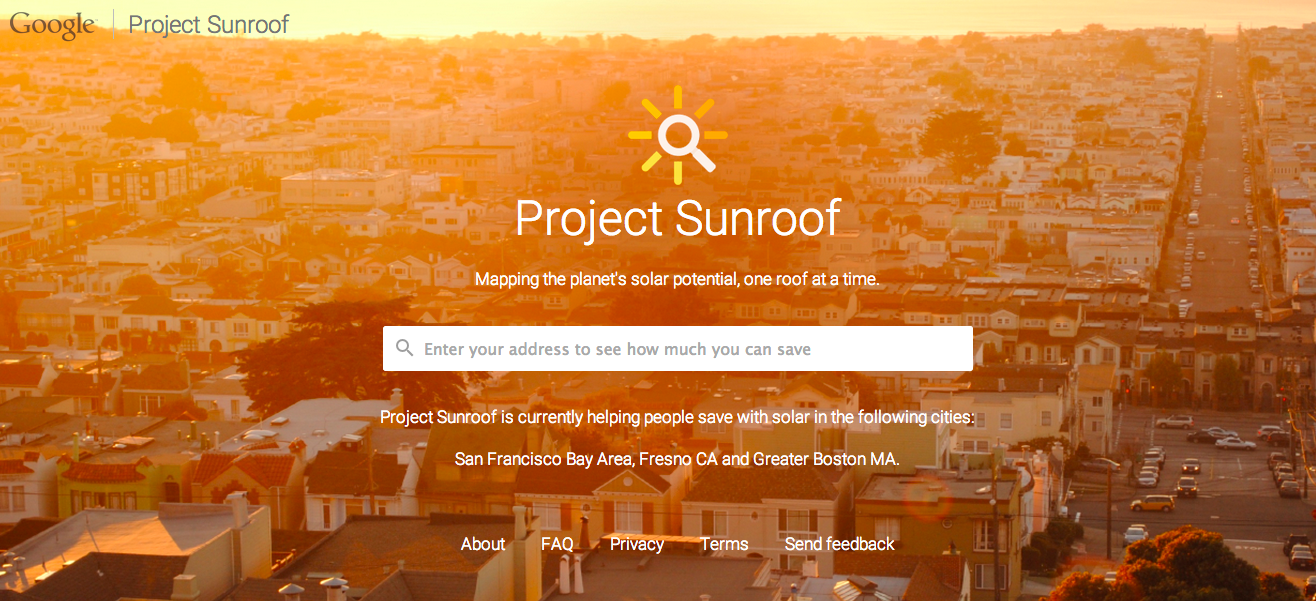Google Launches Tool That Tells You If Solar Panels Can Save You Money
 Are you thinking of putting a solar panel on your home, but not sure if the investment would be worthwhile? Google’s latest unusual online tool aims to take the guesswork out of the alternative energy investment.
Are you thinking of putting a solar panel on your home, but not sure if the investment would be worthwhile? Google’s latest unusual online tool aims to take the guesswork out of the alternative energy investment.
Google today unveiled Project Sunroof, a tool that allows users to look up an address and find out just how useful those solar panels can be to both your wallet and your energy consumption.
“As the price of installing solar has gotten less expensive, more homeowners are turning to it as a possible option for decreasing their energy bill,” the company said on its website. “We want to make installing solar panels easy and understandable for anyone.”
Project Sunroof works by inputting your address in Google Maps and combining that information with other databases to create a personalized roof analysis.
The tool then computes how much sunlight hits your roof each year. Next, Google Sunroof will recommend an installation size to generate close to 100% of your electrical use based on your roof size, the amount of sun hitting the area and your electricity bill.
Finally, the tool generates your possible savings after considering current solar industry pricing data to run the numbers on leasing, taking a loan, or buying solar panels for your house. The equation also factors in federal and state tax credits, utility rebates and renewable energy credits in your area.
Of course, if you find that solar panel installation is something you’d like to pursue, Google will gladly send your information to local solar providers.
For now, Project Sunroof is only available in certain areas of the country — tests of the site found information wasn’t yet obtainable in Iowa or Portland, OR. Consumers can sign up to be notified when Project Sunroof comes to their area.
While Google’s latest tool may seem like it might only appeal to a smaller group of consumers, the use of solar panels has continuously grown over the last several years thanks in part to falling prices for the devices.
As we previously reported, during the last decade, industry and the Chinese government realized that solar power would be important in the future, which it is.
They responded to this prediction by building a huge number of solar panel factories and cranking out the panels in 2009, leading to a massive oversupply. That cut prices worldwide, making it a lot cheaper to cover your roof with solar panels.
Want more consumer news? Visit our parent organization, Consumer Reports, for the latest on scams, recalls, and other consumer issues.

